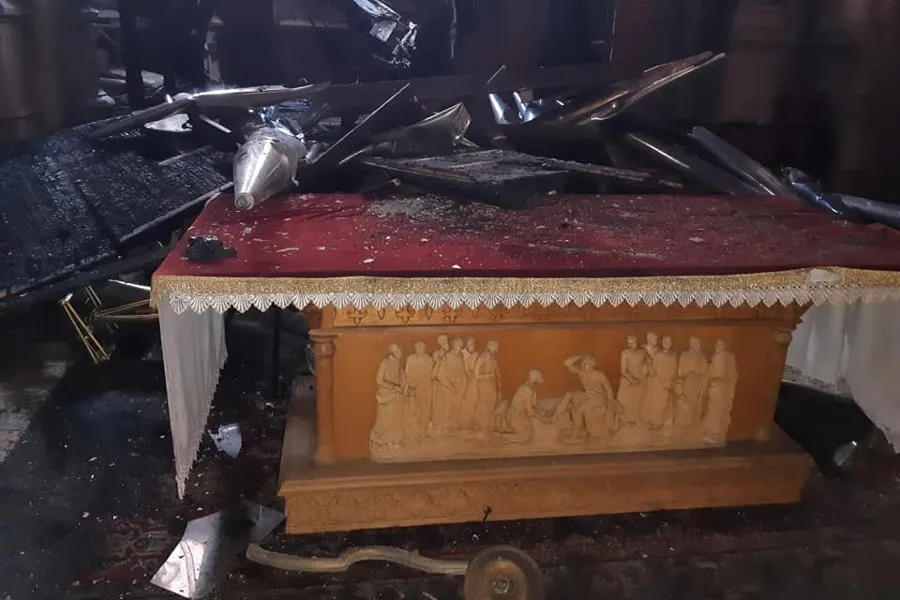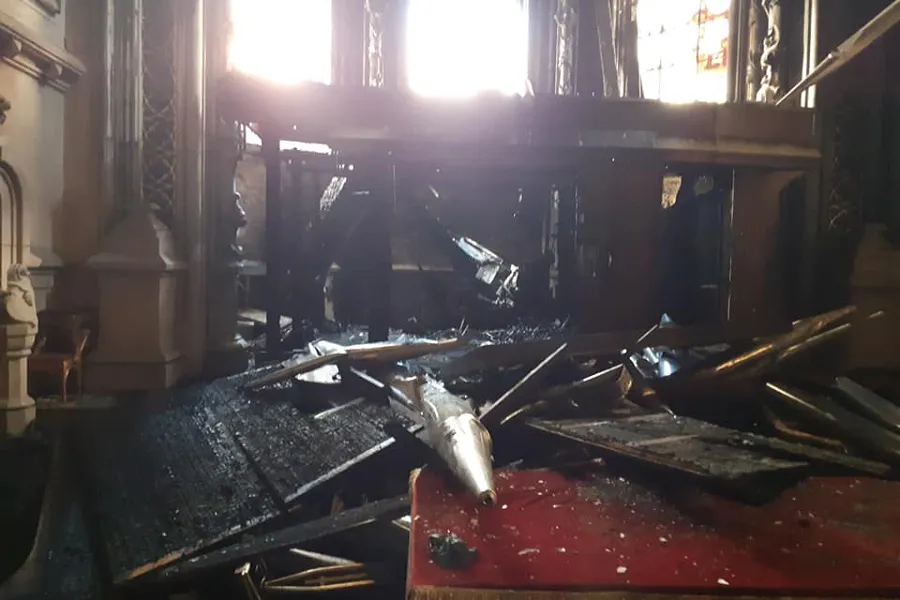
Kyiv, Ukraine, Sep 21, 2021 / 12:00 pm (CNA).
A fire has severely damaged a historic Catholic church in Ukraine’s capital city, Kyiv.
The fire broke out at the Gothic-style Church of St. Nicholas during an organ music rehearsal on Sept. 3, destroying the organ, charring the interior, and sending a chandelier crashing to the ground.

St. Nicholas is the second-oldest Latin Rite Catholic church in Kyiv (also known as Kiev) after the Co-Cathedral of St. Alexander.
Consecrated in 1909, the church served members of the local Polish Catholic community before communist officials closed it in 1938.
Soviet authorities removed the altar, installing a large organ and converting the church into a concert hall.

Ukraine is a country of 44 million people bordering Belarus, Russia, Moldova, Romania, Hungary, Slovakia, and Poland.
Around two-thirds of the population are Orthodox Christians. The second-largest Christian community is the Ukrainian Greek Catholic Church, the largest of the 23 Eastern Catholic Churches in full communion with Rome. Latin Rite Catholics constitute a small minority.
Ukraine declared independence in 1991 after the collapse of the Soviet Union. Ever since, the local Catholic community has campaigned for the return of the church, which is overseen by the local municipality’s culture department.

The authorities argued that the church could not be returned as the organ was too large and could not be placed elsewhere.
Catholics were permitted to celebrate Mass in the church, but it remained a concert hall and the community was obliged to rent the building.
According to the parish’s website, Pope John Paul II visited the church on June 25, 2001, during his pastoral visit to Ukraine.
The Kyiv Post reported on Sept. 4 that police were still investigating the cause of the fire.
Following the organ’s destruction in the fire, Catholics say there is no reason for the church not to be returned. But they report that the government and Ministry of Culture have so far ignored their renewed entreaties.
The authorities are believed to want to restore St. Nicholas as a concert hall.
Priests are continuing to celebrate daily Masses for the parish community. But they are offered in the open air and the weather is getting colder following the end of summer.

The Masses are celebrated by Missionary Oblates of Mary Immaculate.
Local superior Fr. Pavlo Vyshkovkyy, O.M.I., told CNA: “We appeal to Catholics around the world to support us in prayer and to make our situation known to others who might be of help in returning God’s house to the faithful of Kyiv.”
If you value the news and views Catholic World Report provides, please consider donating to support our efforts. Your contribution will help us continue to make CWR available to all readers worldwide for free, without a subscription. Thank you for your generosity!
Click here for more information on donating to CWR. Click here to sign up for our newsletter.





Leave a Reply